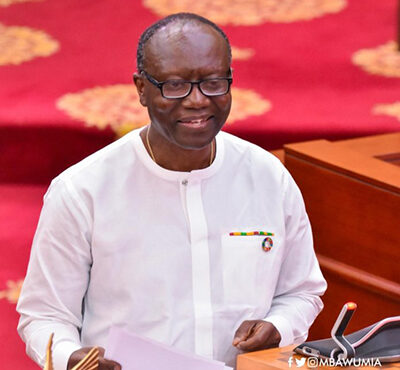Devt Bank Ghana must provide ‘cheap’ capital

A business, whether small or big, sole proprietorship or partnership, public or private, requires capital (financial resources) to thrive. In other words, capital or cash is needed for one to start a business.
Indeed, capital is one of the critical factors of production without which, there can be no business. A cash-strapped business cannot meet its financial and tax obligations as they fall due.
As oxygen is crucial for the survival of a human, so is capital to businesses, whether private or public.
Undoubtedly, capital plays important functions for the sustenance of a business. Capital, among others, helps to procure raw materials for production, pay salaries, procure machinery, other pieces of equipment and new technologies to improve efficiency and productivity.
Generally, businesses are created with personal savings, contributions from family members and friends or a loan. The loan can be from a bank, a friend, a relative or a money lender.
If a business is formed through partnership, members of the group contribute financial resources to it.
In Ghana, due to the poor savings culture, entrepreneurs mostly rely on bank loans to start or expand a business or venture.
The importance of businesses to the health of an economy cannot be underestimated. Businesses provide employment, harness the resources of a country to produce value-added products, transform the resources of a country to generate more wealth, and generate tax revenue for the country.
A business brings value to the economy because without businesses, there can be no economy. The Gross Domestic Product (GDP) of a country, that is the value of all goods and services produced in a country over a stipulated period, is anchored on the activities of entrepreneurs and business operators.
Businesses form the basis for economic activities in the world as they help to tap the resources of various countries. This will cause the economy to grow, and reduce poverty, squalor and disease. In essence, humans cannot survive in the world without engaging in one form of a business or another.
Inadequate capital and high cost of capital, as well as the inability of banks and other financial institutions to grant long-term loans remain a serious challenge to businesses and entrepreneurs in the country and a bane to expansion of the economy. Some businesses demand patient capital to thrive and flourish, which is why long-term loans are important.
While businesses and entrepreneurs in developed economies can borrow at a relatively lower rate, sometimes below two percent, businesses in Ghana have to contend with astronomical interest rate.
While the interest rate charged by banks and financial institutions in Ghana stands at more than 20 per cent, that of the US, for example, is below three per cent. This makes the cost of doing business in Ghana very high, compared with the developed economies. Thus the cost of goods and services is relatively higher in Ghana.
Business groups and associations such as the Association of Ghana Industries (AGI), Ghana Union of Traders Association (GUTA) and Ghana National Chamber of Commerce and Industry (GNCCI) have over the yearscomplained about the high interest rate charged in the country, arguing that the practice is making businesses in the nation uncompetitive.
That is why the announcement of the establishment of a Development Bank Ghana (DBG) by the Nana Akufo-Addo led government has come as a big relief to businesses and entrepreneurs in the country.
The establishment of the DBG has been on the drawing board for the past two years.
As indicated by the Minister of Finance, Mr. Ken Ofori-Atta, the establishment of the bank forms part of the GH¢100 billion Ghana Coronavirus Alleviation Revitalisation of Enterprises Support (CARES) programme, which is expected to be launched in July this year, to build back the economy from the effects of the COVID-19 pandemic.
Among others, it (bank) will be established with a seed capital of $500 million and increased to $1 billion in the five years following, is expected to provide long-term capital to commercial banks, non-bank financial institutions as well as players in agribusiness.
The other sectors to be supported by DBG include manufacturing, Communication and Information Technology, software companies, and tourism.
“DBG is intended to be a model institution that supports the financial system to play its role in supporting the private sector to expand and create jobs. It will help address two important constraints in our financial system, namely the lack of long-term funding and adequate funding to the productive sectors of the economy,” Mr. Ken Ofori-Atta, is quoted as saying about the establishment ofthe new bank .
The objective of the government has been to transform and build back the economy quickly from the ravages of the COVID-19 pandemic by supporting businesses to thrive.
President Nana Addo Dankwa Akufo-Addo, during a tour of some European countries a couple of weeks ago, secured €170 million from the European Investment Bank (EIB) to serve as seed capital for the DBG, The €170 million facility, according to EIB, is the largest facility provided by the bank for the establishment of a development bank in Africa or for any other project, for that matter, on the continent.
While commending the government for the bold decision to establish the bank in the face of the serious financial difficulties of the country occasioned by the coronavirus pandemic, we pray the DBG would help provide long-term funds to businesses at a cheaper interest rate.
It would be appropriate for the Bank to set the pace by reducing interest rate and providing relatively cheaper capital for the private sector, as this will compel the other commercial banks to reduce their interest rates.
This, promisingly, would help improve the financial position of businesses in Ghana for them to be able to compete with their foreign peers in both the local and world markets.
Over the years, policies and programmes initiated by the government and development partners to bring interest rates down appear to have not achieved the desired results.
For instance, the establishment of the Ghana Exim Bank, to act as the principal export finance institution of the country, supporting and enhancing existing trade and investment, has not helped to bring interest rate down.
In spite of the cut of the policy rate to 14.5 per cent by the Bank of Ghana, interest rate is still high in the country.
Undoubtedly, Ghana cannot harness the benefits presented by the Africa Continental Free Trade Area, if interest rate in the country is still high, there is therefore, the urgent need for the appropriate action to bring the cost of capital down.
By Kingsley Asare















